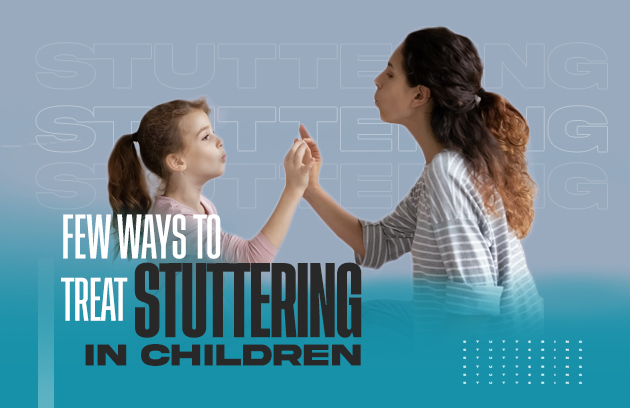Few Ways to Treat Stuttering in Children
Stuttering is a kind of speech disorder in which a person is likely to repeat, interrupt, or prolong sounds, syllables, or words when trying to speak. According to various studies, over a million children and adults worldwide are affected by the same.
People who stutter sometimes know what they want to express or say, but they find it hard to get the words out. Sometimes the words become stuck, or they find themselves repeating the same word over and over, or they simply pause.
There is no particular age for this disorder, it can affect anyone at any age, but it is most commonly seen in children between the ages of 2 – 6. Professional speech pathologists classify this as developmental stuttering, and it can occur for multiple reasons. However according to researchers, 75 percent of children lose this stutter with time, whereas the remaining 25 percent experience this condition throughout adulthood.
How is stuttering treated?
The stuttering treatment varies from person age to age and communication goals Our experts speech-language pathologist (SLP) can help in determine the therapies that might work best for you or your child.
Here are some ways you or your child can help to reduce the symptoms of a stutter.
1. Slow down
One of the most effective ways, according to professionals, to stop a stutter is to try to speak more slowly. First of all, always take a few deep breaths and try to speak slowly. Speeding up in your speech, having trouble getting the words out, or rushing to a complete thought can cause you to stammer.
2. Practice
If you are feeling uncomfortable, reach out to your close friend or a family member and sit with them and talk. Talking to your loved ones or practicing your speech in a safe environment or in your comfort zone may help you feel more at ease with the way that your speech sounds.
Sometimes, joining some self-help groups and tagging along with others who stutter may also be beneficial. One can learn many things with them, like what works for other people when they are speaking in public or even with friends or in small groups. Additionally, it could provide you a sense of companionship.
3. Exercise mindfulness
You can be calm and concentrate on your thoughts or a particular action by practicing mindfulness, which is a type of meditation. You can relax and reduce your anxiety by doing this. Both adults and kids can practice lessening stuttering.
There is some preliminary evidence that mindfulness practices can be beneficial when incorporated into a thorough stuttering treatment program.
4. Record yourself
To know better about your progress, record your own voice. This helps in shedding light on words or phrases that trigger you into stuttering. This is one of the easiest ways that can help you hear things you wouldn’t normally notice. If you ever feel that your own voice is bouncing or causing anxiety, start out slowly. Remember that it might be motivating to hear about your own progress. However, not everyone can use every approach.
Conclusion
We at Asha speech and hearing clinic have been serving our patients for the last 40 years with full dedication and professionalism. Our experienced team of speech pathologists has shown us that stuttering can be effectively managed with proper Stuttering can be reduced over time by practicing speech techniques and requesting patience from those with whom you communicate. The main key to reducing stress is developing a supportive network of family and friends.

